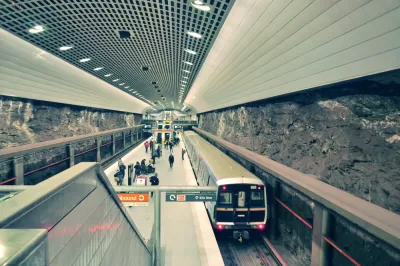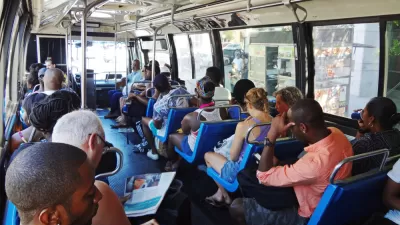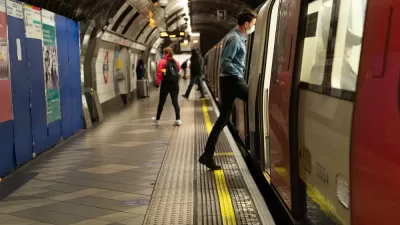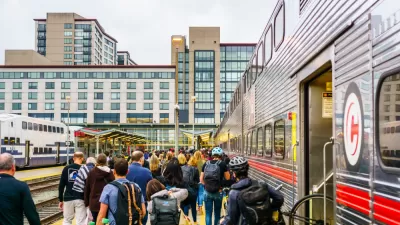After adjusting to COVID-19 protocols and pandemic-era budget cuts, transit agencies must again reorient their service to the post-pandemic world.

Public transit agencies have had it rough for the past year and a half, and as the nation starts to recover from the COVID-19 pandemic, they must adapt yet again to new challenges and opportunities. A blog post from TransitCenter highlights three key challenges and offers solutions for how transit agencies can make the shift to post-pandemic service. "By taking a closer look at these factors, we hope to illuminate the path to successful restoration of service, and shed light on what transit agencies need from their executives, elected officials, and other public agencies in order to provide riders with faster, more reliable trips."
The first challenge is transitioning away from COVID-19 protocols. "As COVID cases drop across much of the United States, transit agencies will need to move away from what is widely seen as 'hygiene theater,' while partnering with public health agencies and other trusted messengers to communicate that transit is safe." The same goes for social distancing rules. "Agencies should advocate for distancing guidelines/requirements on transit to be relaxed in line with falling COVID case rates. States and localities should proactively be adjusting guidelines with both the virus and good transit service in mind."
The third major challenge, the blog asserts, will be hiring and retaining staff. "Widespread operator shortages at agencies across the country have magnified difficulties related to capacity limits" and reduced agencies' ability to provide efficient service. "The need to both expand the pipeline for training and improve pay for transit workers points to the importance of high-level government coordination and securing financial resources to compensate a growing workforce."
FULL STORY: Three Challenges Facing Transit Agencies Emerging From the Pandemic

Maui's Vacation Rental Debate Turns Ugly
Verbal attacks, misinformation campaigns and fistfights plague a high-stakes debate to convert thousands of vacation rentals into long-term housing.

Planetizen Federal Action Tracker
A weekly monitor of how Trump’s orders and actions are impacting planners and planning in America.

In Urban Planning, AI Prompting Could be the New Design Thinking
Creativity has long been key to great urban design. What if we see AI as our new creative partner?

King County Supportive Housing Program Offers Hope for Unhoused Residents
The county is taking a ‘Housing First’ approach that prioritizes getting people into housing, then offering wraparound supportive services.

Researchers Use AI to Get Clearer Picture of US Housing
Analysts are using artificial intelligence to supercharge their research by allowing them to comb through data faster. Though these AI tools can be error prone, they save time and housing researchers are optimistic about the future.

Making Shared Micromobility More Inclusive
Cities and shared mobility system operators can do more to include people with disabilities in planning and operations, per a new report.
Urban Design for Planners 1: Software Tools
This six-course series explores essential urban design concepts using open source software and equips planners with the tools they need to participate fully in the urban design process.
Planning for Universal Design
Learn the tools for implementing Universal Design in planning regulations.
planning NEXT
Appalachian Highlands Housing Partners
Mpact (founded as Rail~Volution)
City of Camden Redevelopment Agency
City of Astoria
City of Portland
City of Laramie





























